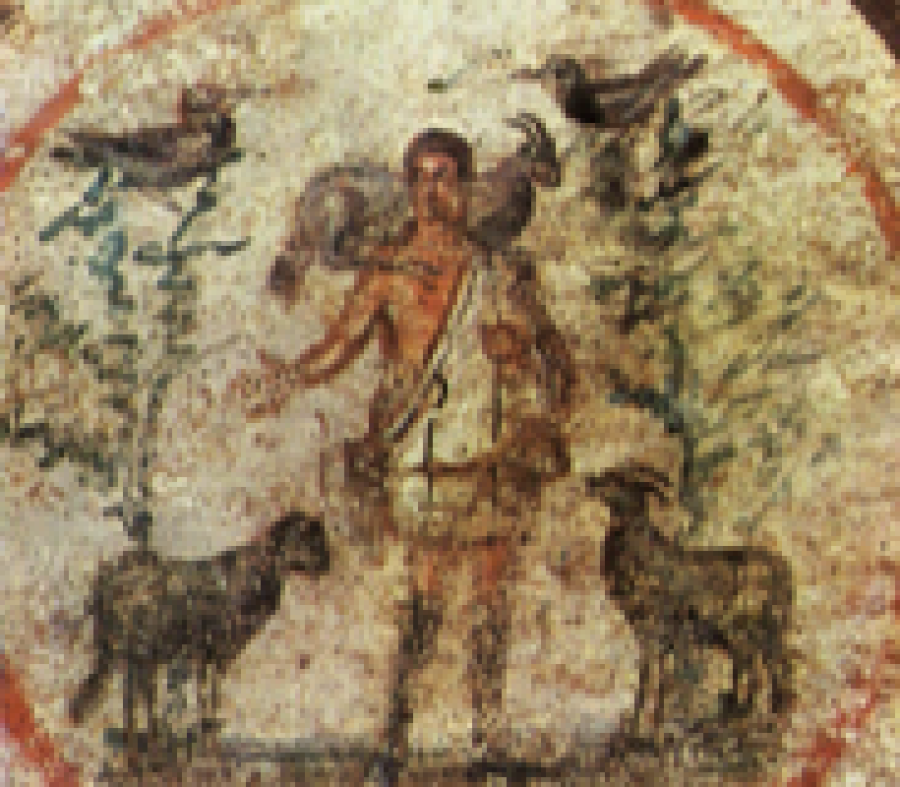Theology Thursday - Forgiveness from Sins? No!
Image

If a Christian commits sin after his conversion, can he be forgiven for these sins? Many today assume he can and will. Doesn’t the Apostle John, for example, say that very thing (1 John 1:8-9)? However, John also wrote, “No one born of God commits sin; for God’s nature abides in him, and he cannot sin because he is born of God,” (1 John 3:9). In fact, a curious reader will find long discussions of this issue, and the implications of sinless perfectionism, in any responsible commentary on 1 John.
In this excerpt from The Shepherd of Hermas, the anonymous author explains (via Hermas’ “shepherd”) that a man cannot be forgiven after his baptism. This book was quite popular in the post-apostolic era. It may be a compilation of two (or more) independent documents, written at different times, which reached their final form in the Shepherd as we now have it. Regardless, its final form likely dates from sometime in the mid-2nd century (or perhaps earlier).
There are at least two interesting things to note:
- The author assumes a baptismal regeneration. This is common in the ante-nicene fathers, and its presence in the Shepherd shows this error showed up quite early in the immediate post-apostolic era.
- The author assumes a type of perfectionism; that is, a man can only be forgiven for sins once after his conversion. There are no other chances. For example, the Shepherd speaks against the mere thought of adultery, and warns, “if anyone does this evil deed, he brings death on himself,” (Shepherd 29:2). This view of the Christian life contradicts stirring exhortations from earlier patristic material (e.g. 1 Clement 51, etc.), not to mention the New Testament itself. However, even the letter of 2 Clement (written ca. 120 – 140-ish) hints at this view, when it speaks about those who “fail to keep our baptism pure and undefiled,” (2 Clement 6:9).
Now, at long last, here is the excerpt from The Shepherd of Hermas:1
“Still,” I said, “sir, I will continue to ask.”
“Speak,” he said.
“I have heard,” I said, “sir, from some teachers that a second repentance is not possible beyond that one, when we went down into the water and received forgiveness of our previous sins.”
He said to me, “You have heard correctly for so it is. For it is necessary for the one who has received forgiveness of sins to sin no longer, but to dwell in purity. But since you inquire exactly about all things, I will also make this known to you, not giving an excuse to those who will believe in the future, or those who already believe in the Lord. For those who already believe, or who will believe in the future, they do not have repentance for sins, but they do have forgiveness of their former sins.
Therefore those who were called before these days, the Lord has appointed repentance. For being a knower of hearts, the Lord also knows all things beforehand, the weakness of people and the cunning of the devil, that he will do some evil to the servants of God, and he will do wrong to them. Therefore being full of compassion, the Lord had compassion upon his creation and established this repentance, and he gave the control of this repentance to me.”
“But I say to you,” he said, “after the calling, that great and honorable one, if someone, being tempted by the devil, might sin, he has one repentance. But if he should sin and repent repeatedly it is harmful to the person such as this, for he will live with difficulty.”
I said to him, “I was given life upon hearing these things from you so accurately, for I know that if I will no longer add to my sins I will be saved.”
“You will be saved,” he said, “and all whoever may do these things.”
Notes
1 “The Shepherd of Hermas,” 31 (Mandate 4), in The Apostolic Fathers in English, translated by Rick Brannan (Bellingham, WA: Lexham, 2012).
Tyler Robbins 2016 v2
Tyler Robbins is a bi-vocational pastor at Sleater Kinney Road Baptist Church, in Olympia WA. He also works in State government. He blogs as the Eccentric Fundamentalist.
- 65 views
…especially confession and last rites. I seem to remember that Constantine delayed baptism until he was on his death-bed specifically because of this.
Makes me pretty glad for Hus, Wyclife, Tyndale, Luther, Calvin, and the other Reformers, to put it mildly.
Aspiring to be a stick in the mud.



Discussion